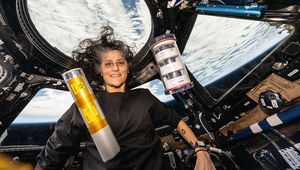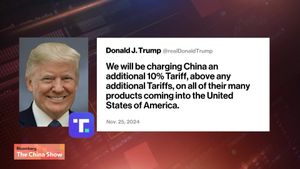Tesla's sales have taken a significant hit, marking a stark reversal for the electric vehicle (EV) giant as it faces increasing competition and changing market dynamics. According to the California New Car Dealers Association (CNCDA), Tesla reported its first annual drop in sales during 2024, with deliveries plummeting by 11.6%, resulting in nearly 27,000 fewer electric vehicles delivered. This decline is particularly worrisome as California is the largest EV market in the U.S., accounting for nearly half of all electric vehicle sales across the country.
For years, Tesla was the uncontested frontrunner within California and the wider U.S. EV market. Its market share was dominantly at 60% just last year, but it has since fallen to 52.5%. Despite maintaining the majority share, the company has found itself increasingly challenged by new competitors as the overall EV market continues to expand. Industry reports indicate the California EV market grew by 1.2% overall, and without Tesla's figures, growth skyrocketed to 20%.
Overall, Tesla's struggles are evident as it marks its fifth consecutive quarterly registration decline. Registrations during Q4 2024 dropped by 7.8%, contributing to the aforementioned decrease. Tesla's market share of California's EV market has now dipped from 13% to 11.6% amid this downturn. The CNCDA's report highlights shifting consumer preferences, with new entrants like Rivian and Lucid increasingly capturing the attention of California drivers.
The effects of this decline extend beyond just numbers, as political and economic landscapes also shift. The federal tax credit for EVs is on uncertain footing, with discussions around its potential removal looming large. Tesla, recognizing the importance of maintaining strong sales figures, could face even harsher consequences if these incentives vanish. Nevertheless, California's state government has indicated plans to step up to fill any gaps, ensuring continued support for EV adoption.
Individual automakers are finding themselves at various crossroads. Elon Musk's reputation has taken substantial hits, particularly since the polarization of American politics under Trump's presidency, leading to speculation about the influence it might have on Tesla's sales moving forward. Analysts are wary, predicting the potential for sales to falter even more dramatically as external market pressures mount. "Things aren’t looking so golden for EV automaker Tesla in the Golden State," remarked the CNCDA, underscoring the company's fragile position.
While Tesla navigates these challenges, the larger industry picture remains complicated. The rise of competitors points to the availability of more choices for consumers who may now prefer options from smaller, emergent companies or established car brands integrating EVs more seriously. This industry shift exemplifies how rapid technological advancements and consumer trends could redefine market hierarchies.
The total decline of Tesla's sales is particularly poignant against the backdrop of their once-untouchable dominance over the EV market. Data shows Tesla's delivery volumes have now faced their first annual decline after more than ten years of uninterrupted growth. The changing political and economic forces are nudging consumers toward more diversified choices with varying price points and features. Some experts believe this could be the dawn of broader, more competitive EV markets across the U.S.
Concerns are mounting about how Tesla's decline will influence perceptions of electric vehicles overall. Negative news could lead to inertia among potential EV buyers, especially when regard is lent to the slowing sales curves. Factors can pivot quickly, with fears about the longevity of electric vehicle trends amplifying as competition heats up.
Looking at the supply chain may also yield insights. Tesla's Chief Financial Officer, Vaibhav Taneja, recently acknowledged the company's dependencies on component suppliers located abroad, foreshadowing difficulties posed by any tariffs imposed by political administrations. Given Tesla's reliance on components between 20% and 25% sourced from Mexico, the company is not immune to supply chain disruptions. "Over the years, we've tried to localize our supply chain, but we are still reliant on parts from across the world for all our businesses," Taneja commented during earnings calls, hinting at the broader concerns faced by U.S. automakers.
The automotive industry’s fate appears intricately tied to the whimsical swings of government policies and economic forces. Rivian and Ford, among others, are also reckoning with these uncertainties, with both companies committed to significantly ramping up U.S. manufacturing efforts yet still intimately connected to supply lines overseas.
While the future remains unpredictable, one aspect seems clear: Tesla's sales decline could signify not just the struggles of one company, but also foreshadow larger developments within the entire electric vehicle sector and the global automotive industry as consumers evaluate their options more closely. With political scrutiny, new competitors on the rise, and potential changes to federal incentives, the road ahead for Tesla will require agile strategies and strategic shifts to restore its place as the leading EV manufacturer.



